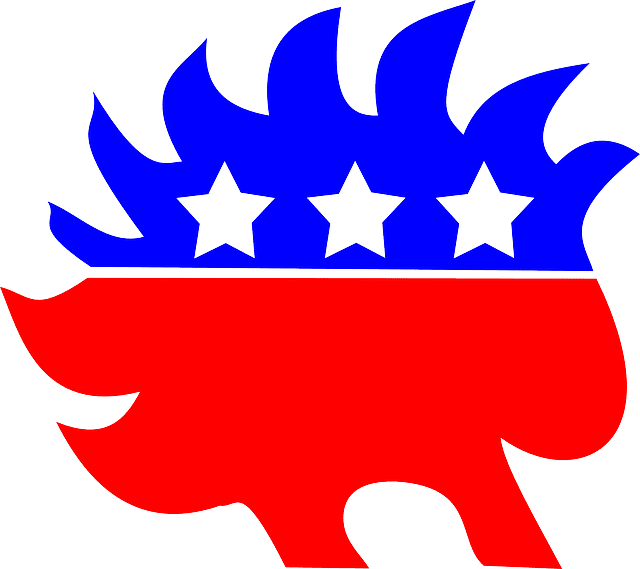A wave of populism, in which ordinary Americans rose up against the corporate and political establishment, put Donald Trump into the White House.
Back then the populist theme was “Make America Great Again,” combining old-fashioned patriotism with opposition to the globalism by which multi-national corporations exported much of our industrial base overseas at the expense of the American working class.
Trump was conservative, but he was a different kind of conservative, willing to rein in the free market to protect American jobs and willing to defy the progressive elites who dominate the media, academia, and the corporate world and who look down their noses at ordinary Americans.
Trump’s 2016 victory and his dominance of the Republican Party led some intellectuals on the Right to add theory to Trump’s practices. They formulated “Nationalist Conservatism,” a version opposed to the “Neo-Conservatism” that sought to impose American values on the rest of the world by military intervention if necessary and the economic conservatism that promoted laissez-faire capitalism at the service of big business. The Nationalist Conservatives focused on building up the nation, not only with protectionist economic policies but by restricting immigration, preserving traditional American culture, and marshalling government power for the “common good.”
Some, not all, of the Nationalist Conservative thinkers took it even further. They criticized not just “liberals,” that is, political progressives, but “liberalism” itself; that is, the centrality of individual “liberty” (where this broader sense of liberalism gets its name), and democracy. They held that these elements of American constitutionalism, born out of the Enlightenment, undermine traditional moral values and inevitably manifest themselves in the assault on the family, sexual permissiveness, and the pursuit of hedonism. These critics, most of whom are Roman Catholic “integralists” with fellow-travelers among Reformed and Pentecostal theonomists, advocate a more authoritarian approach to government. Thinking Trump was that kind of “strong man” ruler–even though Trump was not really authoritarian at all–they advocated a “big government conservatism” that would take it upon itself to solve America’s problems.
Meanwhile, the Left, which took power with President Joe Biden’s administration, was also embracing “big government” solutions to America’s problem. Progressives also sought to tamp down the liberties of Americans, cancelling free speech and free expression, seeking restrictions on religious freedom, and–in the name of combatting the COVID epidemic–imposing harsh controls on citizens and making them dependent on government spending.
So we live in a time when both progressives and conservatives, the Left and the Right–even as they are at each other’s throats– are advocating big government, criticizing America’s values and heritage, preferring authoritarianism to democracy, and questioning American constitutionalism.
So it is surely healthy that the libertarian impulse is making a comeback.
This is noted in a Wall Street Journal article by Gerard Baker entitled Covid Restrictions and Other Overreach Bring America Toward a Libertarian Moment (subscription required), with the deck, “Trillion-dollar spending, onerous regulations and even censorship haven’t ended the pandemic.”
Though the progressives in charge continue to insist that the government should have even more power, spend even more money, and exercise even greater control over all areas of life, the government seems increasingly inept. The COVID lockdowns, the ever-changing expert instructions, and the vaccine mandates did not inspire confidence. “Worst of all, ” says Baker, “the authoritarian instinct this time has reached deeper into the once-sacred field of free speech, and we have the marginalizing and even outright ostracizing of heretics who dare challenge the authorities’ narrative.” And the general public across the political spectrum is getting sick of it. “Perhaps the biggest cause for optimism,” Baker concludes, “is that this time people don’t have much cause for faith in the omnipotence of the state.”
I would add that the impetus for this libertarian backlash is coming not primarily from intellectuals or policy-makers. It has become the new populist cause, even at the expense of the old populist cause. From the Canadian truckers’ convoy to the parental revolt against woke school boards, ordinary citizens in the U.S. and elsewhere are fed-up with attempts on the part of either the government or corporations to control their every move and their every thought. Their resentment can extend even to Donald Trump, whom they earlier fervently supported, as is seen in the way opponents of the vaccines and other anti-COVID measures have turned on him for the part he played in the lockdown and vaccine development.
Now I myself am not a libertarian. I believe that libertarians often minimize and disrespect the legitimate authority that God has given the state. I believe that libertarianism can encourage the mindset that “I should be able to do anything I want,” undermining the moral law and creating a false exaltation of the self. Libertarians often embrace the freedom to get an abortion and advocate the legalization of drugs and prostitution, all of which go against my convictions.
Nevertheless, I know quite a few Christians who describe themselves as libertarian. Many conservative, confessional Lutherans–including pastors–are libertarians. There are many pro-life libertarians, including the political leaders of that movement, Ron and Rand Paul, who insist that the child in the womb is entitled to liberty too. Libertarians can hold to high moral principles, even while desiring to limit the state’s coercive power, which, they say, interferes with the individual’s moral responsibility. And some libertarians consider that drugs, illicit sex that undermines the family, and other indulgence in enslaving passions actually destroy human freedom.
Libertarians promote free market economics. But libertarians can also oppose big corporations, which often oppose the free market by seeking to form monopolies and stifle competition.
I guess my political philosophy, undogmatically held, would be closer to “fusionism,” the bringing together of cultural conservatism and libertarianism as practiced by Ronald Reagan. (See also this article by Lee Edwards, which makes the case for fusionism in today’s context.)
That had fallen out of fashion, but perhaps it is coming back with a populist force.
Image: The Libertarian Party Porcupine by Clker-Free-Vector-Images from Pixabay














